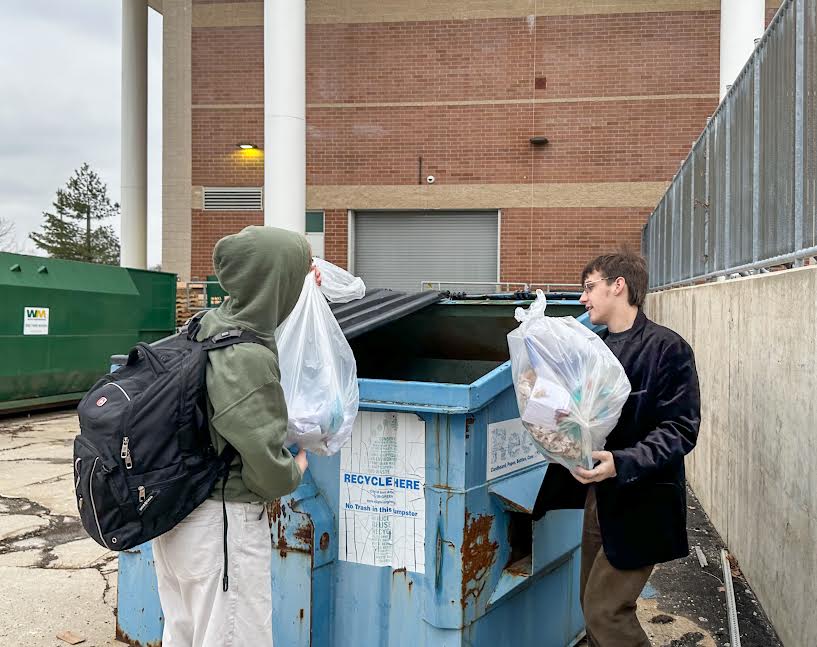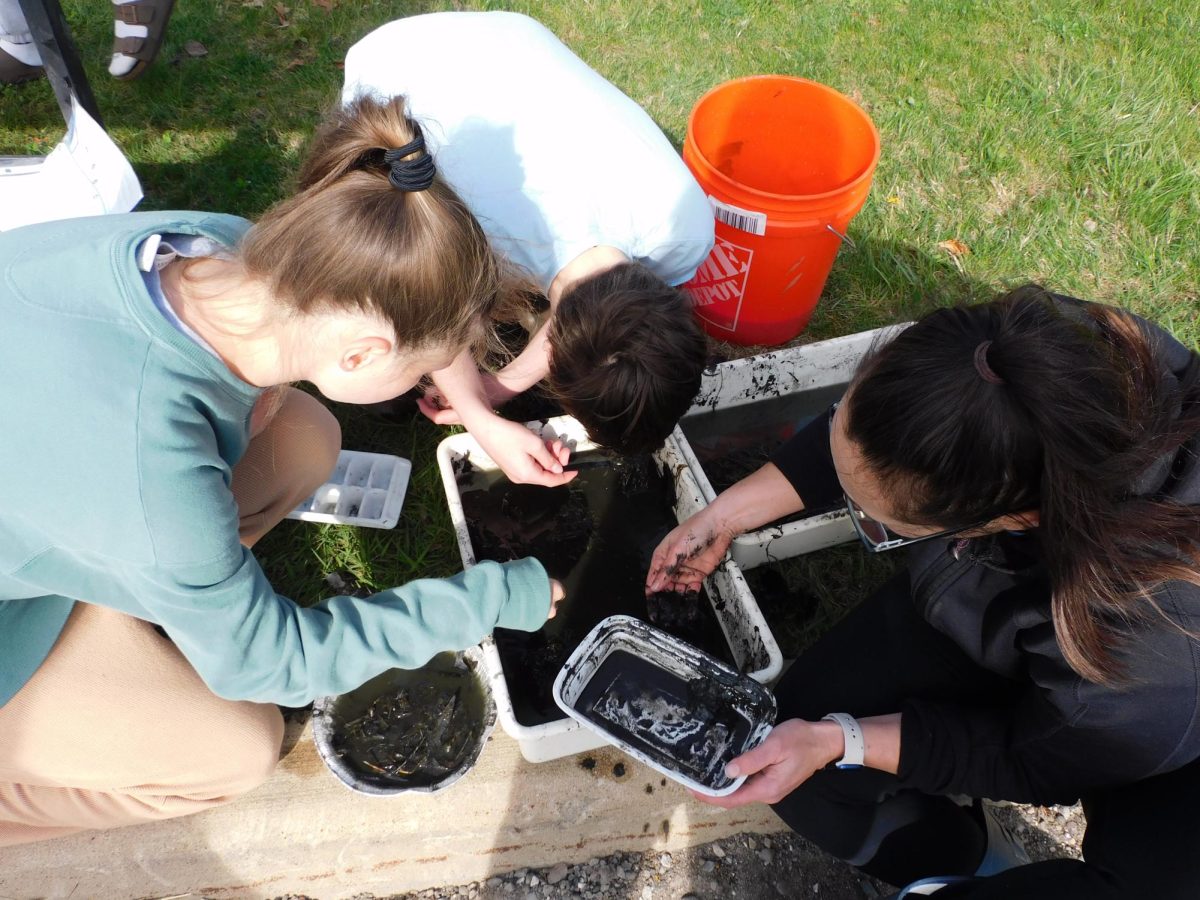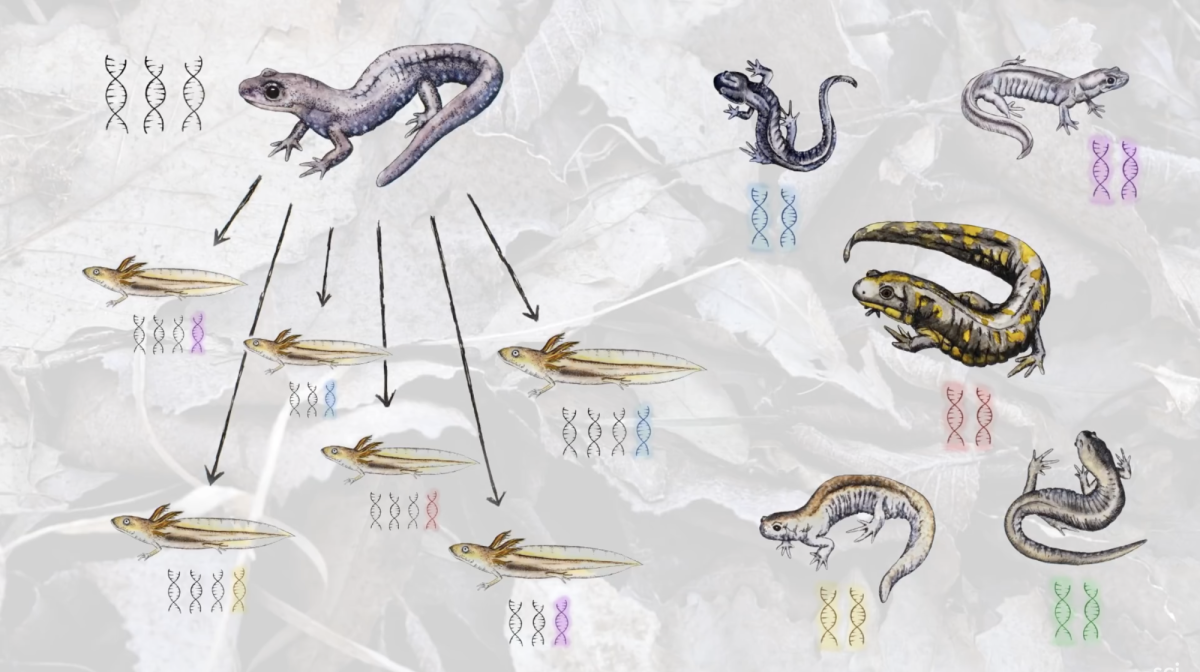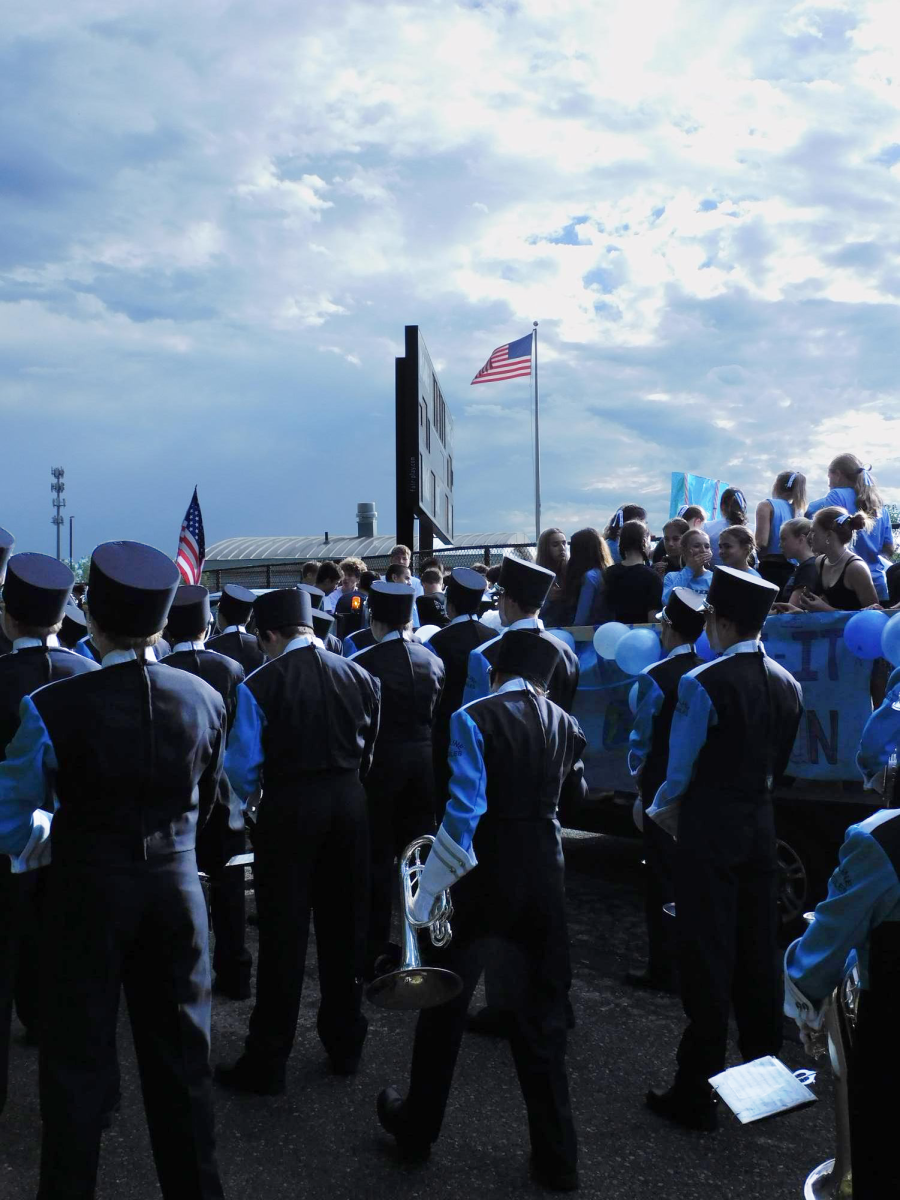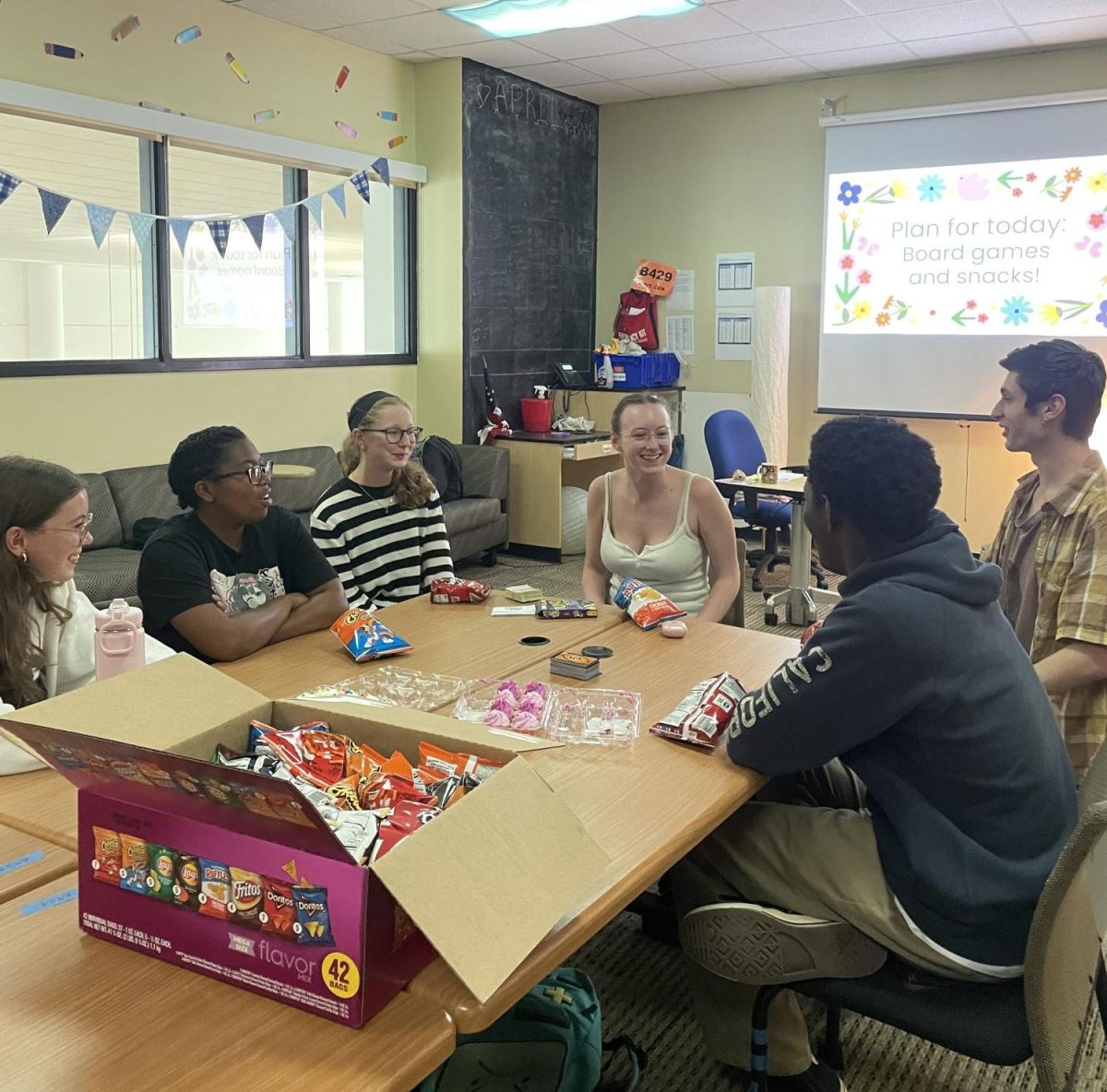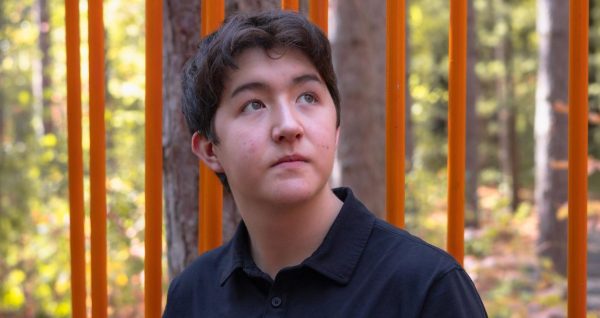Since September of 2021, Skyline’s Environmental Sustainability Club (ESC) has been taking out as many of the building’s recyclables as possible, every day after school. In November of 2024, they found out all their hard work had been in vain. Despite the ESC ensuring that the recyclables made it to Ann Arbor’s Zero Waste Material Recovery Facility (MRF), the recyclables were still ending up in the Arbor Hills Landfill.
“I felt betrayed, I felt hurt, I felt sad, I felt angry. I felt a lot of things that weren’t good,” says ESC member Adam Makki (‘26).
Why is the recycling ending up in the landfill?
In any other school district, having student clubs and parent groups gather schools’ recycling would be redundant. In Ann Arbor Public Schools (AAPS), it’s a necessity. Despite AAPS’ commitment to recycling, the district doesn’t do it.
The immediate cause for the district’s shortcoming is simple: the custodial staff is not told to bag waste and recyclables separately. Instead, they combine the recycling and waste and put both into the waste dumpsters behind the schools.
Although the failure to recycle is a district-wide issue, current solutions are haphazard and unscalable. Skyline’s answer is the ESC. Without the club, only materials from Skyline’s cafeteria would end up at the MRF.
The Skyline Post received no definitive answers as to why the custodial staff doesn’t recycle, despite reaching out to several district level employees.
A district manager and a subcontractor for American Building Maintenance (ABM) — the company overseeing AAPS’ waste system — were unable to comment, due to contractual restrictions.
AAPS Assistant Superintendent of Capital Programs & Physical Properties, Bernard Rice, did not respond to inquiries, despite multiple email and in-person requests. Amber Strong — the former holder of the position — could not be reached.
In the absence of answers from district officials, several Skyline staff members pointed towards three recycling challenges which the district faces: staffing, contamination, and costs.
The primary obstacle is a lack of staffing, an ongoing issue throughout the district. With low pay and late hours, custodians are hard to come by. The staffing issue is compounded by an extremely high turnover rate.
“The positions are hard to fill, [which] makes it difficult to do ‘extra’ things,” says Skyline Assistant Principal Delsie Sissoko. “They’re going to collect the trash, but to collect the trash and [recycling separately] — that’s extra. The manpower just hasn’t been there.”
Compounding this is the issue of contamination.
“My understanding is that the custodians are taught that bins [of recyclables] contaminated with food or drink [are] not supposed to [be] put in the recycling [dumpster],” says AAPS Environmental Education Program Lead Teacher Coert Ambrosino, who creates and promotes programs to learn about environmental issues throughout AAPS.
For recyclables to go into the recycling dumpster, custodians would have to first go through them and remove any non-recyclables or recyclables with food residue. Given limited personnel and time, this isn’t feasible.
Adding to these issues is the monetary cost of recycling. In a district facing financial difficulties, it’s especially hard to keep up with recycling costs worldwide as they rise due to large-scale contamination, increased transportation costs, and inadequate recycling infrastructure.
“The cost of … recycl[ing] has gone up,” says environmental science teacher Casey Warner. “There’s no market for recycled materials worldwide.”
What’s happening to Skyline’s recycling?
Although the custodial staff exclusively use the waste dumpster, the recycling dumpster is far from untouched. Since September of 2021, the ESC has been ensuring that at least part of the school’s recyclables reach the Material Recovery Facility.
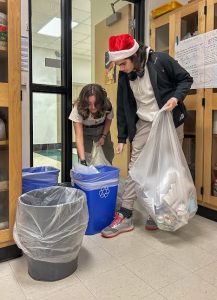
After school, members of Skyline’s Environmental Sustainability Club split into teams to retrieve recyclables. Going through the bins of hallways and open classrooms, they bag the recyclables ahead of the custodians’ nightly rounds.
“[In the past], we just did it once a week,” says ESC Labor Group Leader Kai Jellings (‘26), “[but] the custodians go through every day to take all the recycling and trash, so now we’re doing it every day.”
However, getting the recyclables to the recycling dumpster doesn’t guarantee that they will be recycled. While the ESC’s work has ensured that recycling makes it to the correct location — the MRF — one issue has stopped their recycling from staying out of the landfill: the plastic bags.
Before carrying the bags of recyclables to the recycling dumpster, they were tying the bags shut. When they reach the MRF, tied bags pose a difficulty to workers: along with the time and effort required to check them for contamination, not knowing what the bags contain is a safety risk.
During our investigative process, The Skyline Post discovered that it is the policy of the MRF — and thus of Ann Arbor generally — that recyclables should not be put into plastic bags.
“…if the recycling stays in the bag, it will not get recycled at the Material Recovery [Facility],” says Ambrosino. “Any bagged recyclables get pulled off the line and [sent to] the landfill.”
What’s changing at Skyline?
Since learning about the MRF’s ban on bagged recyclables, the ESC has changed their approach to recycling. In November of 2024, the club began using the recycling bags only to ferry the recyclables from the bins to the dumpster. With this change, recyclables from Skyline make it through the MRF to local businesses that can reuse the materials.
“We want to help the environment,” says ESC member Eda Kirca (‘26). “I don’t want [recyclables] to end up in a landfill.”
Note: The Skyline Post tried repeatedly to contact district officials and received no response. The story will be updated as new information surfaces.

